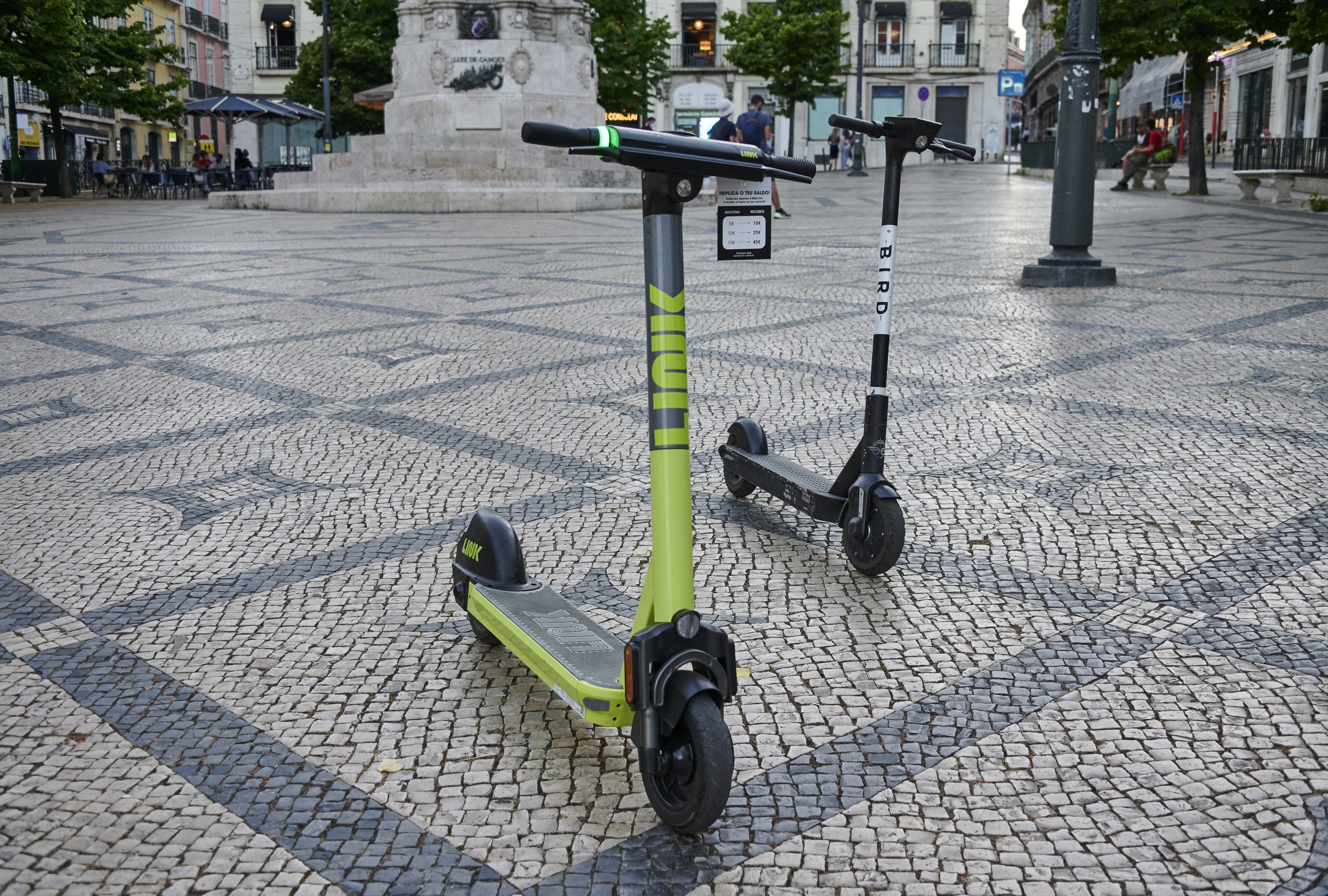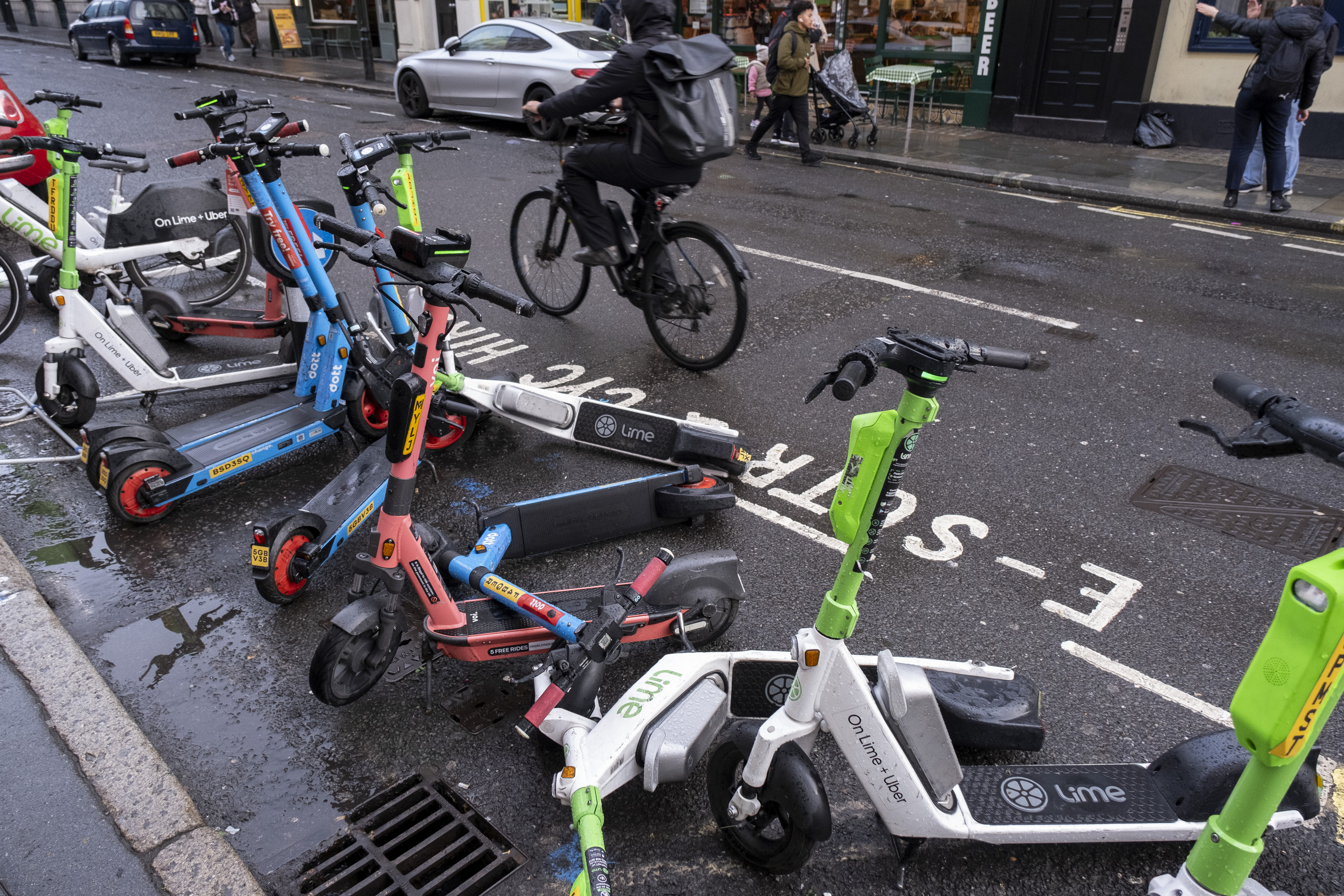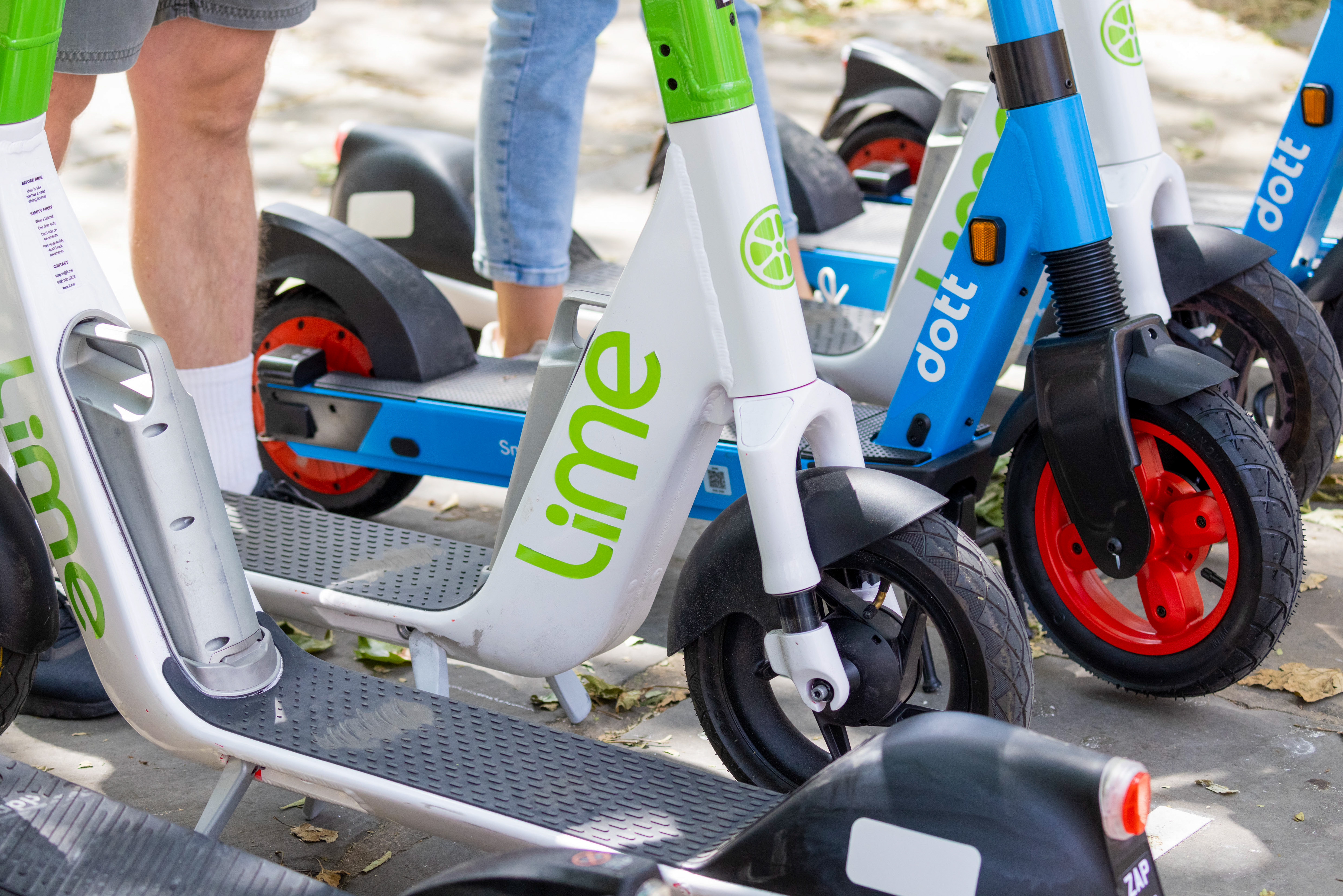At an all-hands meeting just before Thanksgiving, Superpedestrian’s CEO Assaf Biderman told staff the electric scooter company was gearing up for fresh funding and a merger. Management would announce the news on January 1, but until then, Superpedestrian needed to go lean. A handful of people lost their jobs, including some executives in Europe. The rest were told to hold fast.
Less than a month later, Superpedestrian would collapse.
“And then, of course, we got the bad news [on December 15],” one former employee at Superpedestrian told TechCrunch in a phone interview. “Merger and funding didn’t go through. We have to close it all down. See you later.”
Superpedestrian isn’t the only shared scooter business to falter or shut down this year. Bird, Micromobility.com, Tier and Spin are all an existential question at this point. While each of these companies had their own specific problems, a combination of similar factors led to their demise, including unfavorable city regulations, high operational costs and hiring bloat as a consequence of VC funding.
TechCrunch spoke to several former Superpedestrian employees on the condition of anonymity. Through those interviews, and talks with industry experts, we have viewed a pattern emerging — one that suggests the shared electric scooter business as we know it is dead.
Superpedestrian’s downfall is emblematic of problems within the shared micromobility industry.
The company told staff that it needed to wrap operations by December 31 and that it was exploring the sale of its European business. All of Superpedestrian’s 170 employees were let go, with the exception of a skeleton crew of operations staff to pull scooters off the streets. One such employee told TechCrunch they didn’t know whether Superpedestrian had a plan for its assets — neither the robust Link scooters, nor the diagnostic or geographic software that set Superpedestrian apart from its competitors.
“We were told that if anybody had a Superpedestrian scooter and wasn’t within 50 miles of a Superpedestrian market, we were supposed to keep it or dispose of it ourselves,” another former employee told TechCrunch, noting that the scooters would no longer operate once the company shut down.
Employees at Superpedestrian say they felt blindsided by the shutdown and a lack of transparency from leadership. Alexander Berg, Superpedestrian’s director of U.S. operations, told staff during a Zoom call that the reason for the shutdown was financial, but he didn’t go into detail.
Neither Berg nor Biderman responded to TechCrunch’s request for more information.
Superpedestrian was a spinout from MIT’s Senseable City Lab that launched shared scooters in 2020. The startup once held much promise, operating in top-tier U.S. cities like Seattle, Los Angeles, Baltimore, Detroit and Chicago, as well as in Austria, Italy, Sweden and Portugal.
The startup last raised a $125 million Series C in February 2022 to expand Pedestrian Defense, Superpedestrian’s advanced rider assistance system that could detect and correct unsafe riding behavior, and garnered a reputation for being a model city partner with a 100% compliance record. Superpedestrian also boasted a diagnostic software that would help it operate at a lower cost structure, and a beefy, long-lasting scooter that actually felt safe to ride.
But it wasn’t enough to generate the demand needed to sustain the business.
What went wrong at Superpedestrian

As Berg told employees during that fateful meeting in December, Superpedestrian’s most immediate problem was a financial one. Despite securing loans from two of its backers, Jeffries and Antara, in July and October, respectively, Superpedestrian couldn’t bolster operations.
Several former employees at the company attribute Superpedestrian’s failure to a host of issues, from lack of investment into marketing and winning proposals to missteps among upper management to the poisoned well of VC-backing.
“Superpedestrian made a miscalculation,” a third former Superpedestrian employee told TechCrunch. “We thought we could be like Elon Musk and sell an awesome product without investing in marketing.”
Superpedestrian didn’t staff out its policy proposals team with people who could form relationships with city officials and prod for more favorable regulation. That and a lack of marketing meant Superpedestrian failed to attract riders, and it didn’t win enough city permits in revenue-generating markets.
“The scale of markets where we could be profitable was low, and the profits we were getting were just beyond breaking even,” the employee continued.
Others attributed the failure to a lack of coherent leadership.
“Our CEO was never focused on scooters. He wasn’t a scooter guy,” one of our sources told TechCrunch. “He spent a good year trying to get people to buy our software, doing software-as-a-service, and he missed the boat on understanding that it was the permits that were worth money.”
That source said Biderman pitched Superpedestrian’s diagnostic and fleet management software to automotive and other transportation companies, attempting to diversify revenue streams before even getting the core scooter-sharing business right.
TechCrunch also learned that there was an internal battle at Superpedestrian between those who were idealistic about being compliant city partners, and those who thought the startup couldn’t afford to run a business that way anymore.
“We started to cut corners with compliance,” one of the former employees told TechCrunch, noting that the startup would put more scooters on the ground in certain cities than were permitted. The source said while this happened a couple of times at Superpedestrian, it was standard practice at Bird.
That source also noted that Superpedestrian said yes to onerous city requirements in order to win permits. For example, many cities, like Los Angeles and Baltimore, required operators to put a portion of their fleets on the ground in low-income neighborhoods. The idea was to provide equitable first- and last-mile options to people in transit deserts. But what that often looked like for operators was low ridership and vandalism in cities that were also charging fees to operate.
“I think this was really one of the poisoned dynamics within the industry. We were all so hungry to get that permit, we would say yes to anything, knowing that meeting the conditions of the permit would mean we would not be profitable,” the former employee continued. “So we were selling this story to investors [that we could provide high returns]. And then we were also selling the story to cities, and they didn’t reconcile often very well.”
The disconnect between being a VC-backed business and a city partner became a common dynamic in the industry.
“A lot of the frothiness of the scooter industry was predicated on the notion that they’re tech companies that will have a high profit margin and return value to investors. But at the end of the day, it was a low-margin grind, like a logistics business, and a very different type of business than was originally advertised.”
The great micromobility experiment

The first cracks in the shared micromobility industry began to appear almost immediately. And by 2023, it was falling apart. Bird delisted from the stock exchange in September and filed Chapter 11 bankruptcy in December. Micromobility.com also just got delisted as it attempted yet another reverse stock split. Tier sold off Spin to Bird and recently issued its second round of layoffs this year.
Before shared scooters, there were shared bikes — initiatives that cities would actually promote and fund, rather than thwart and charge operators for. Citi Bike, which Lyft purchased in 2018, is seen as the crown jewel of bikeshare, an example of how cities could work with private companies to provide greener, sustainable first- and last-mile travel to residents.
Then came the VC money. Investors that had missed the boat on investing in ride-hail companies like Uber and Lyft jumped at the chance to fund this next big thing.
Bird was among the first to fuel the hype cycle of dockless shared e-scooters, alongside Lime, Skip, Scoot, Grin, Yellow and Jump — most of those companies are now bust. Bird’s founder Travis VanderZanden came from Lyft, bringing with him that move-fast-break-things Silicon Valley ethos and promising investors huge returns. In 2017, Bird and Lime became the new Lyft and Uber — each company racing to win market share and throw scooters on roads without consulting cities first.
Cities, still reeling from the cowboy antics of the ride-hail companies, had a trauma response to the scooter infiltration. Many of them called e-scooters a nuisance and banned them from their streets. Chastened, Bird, Lime and other scooter operators came back to cities later promising to be better partners. They agreed to pay exorbitant fees to operate, rather than pushing for government subsidies. They said yes to operating short pilots instead of insisting on long-term partnerships, shelling out the huge operational investment required to launch.
The irony is, had Bird and Lime approached scale in a more measured way, many cities would have probably welcomed shared scooters, and later, e-bikes as ways to help incentivize greener forms of transit that could address congestion issues.
Ben Bear, former CEO of Spin and current co-founder and CEO of BuildCasa, told TechCrunch that city regulations were either too permissive as to allow a free-for-all (à la Austin) or overly restrictive to the point that operators couldn’t provide enough density to hit commuter use cases, rather than occasional joyrides.
“And then, as people pulled their fleets over COVID, demand went down and never fully recovered,” said Bear. “So you had to make the cost per trip extremely high in order to cover operations. The shared industry — outside of New York City, DC and a few dozen other campuses and cities — ended up being a vicious cycle where you have really high prices and low density, leading to a low ridership for the non-joyride slash tourist use case, leading to the market being much smaller than people expected.”
Bear also noted that the United States is extremely car-centric, and thus lacks the necessary cycling infrastructure to make many riders feel safe jumping on a scooter or e-bike. This was likely one of the problems Tier ran up against when it purchased Spin to enter the North American market. The German shared scooter operator was leading the race in its home country, which has denser cities with better bike lanes.
Bird’s reported data bears out the decreasing demand for rides over the years. Bird’s average rides per vehicle per day went from 1.7x in the first nine months of 2021, to 1.3x during the same period in 2022, to just 1x in 2023.
Bird’s balance sheets also provide a glimpse into how shared micromobility companies — high on VC money — burned too much cash in the early hype days to come back from the brink later on. In 2021, Bird’s operating expenses hit $259.3 million at a revenue of around $190.5 million. The following year, Bird’s opex nearly doubled to $506.1 million, but its revenue only increased to $244.7 million. Clearly, the scooternomics did not have wings.
Bird did manage to eventually bring its costs down, after parting ways with VanderZanden and bringing in Shane Torchiana at the helm in September 2022.
The first nine months of 2023, Bird’s operating expenses maxed $110.5 million, down from the $447.6 million in the same period of 2022. Bird’s net loss was also far less dire at $73.4 million, compared to $322.3 million in the first nine months of 2022.
“Bird’s gross margins are actually pretty impressive when you just look at them on the surface,” James Gross, co-founder and CEO of Micromobility Industries and Ride Review, told TechCrunch.
Despite gross margins of 31% in the first half of 2023, the damage had been done for Bird. No amount of cost cutting helped assuage investor fears.
“Their DNA has just never been fixed, even after all the layoffs, everything is still completely out of whack. And it’s from the boom days,” continued Gross.
This outcome wasn’t unique to Bird.
“The way these businesses were set up, they’re just not able to make money,” said one of the Superpedestrian employees. “And there was a pivot from cities subsidizing to cities charging enormous permit fees and vehicle fees and per-mile fees. So as soon as that VC started drying up, there just wasn’t enough money to pay for it.”
Why Lime might be the winner to take all

Lime seems to have avoided the bad fortune that has fallen on its competitors. The company hasn’t issued massive layoffs that we know of since the COVID-19 pandemic or sold off any business units. In fact, Lime has claimed several times over the past three years that it has indeed reached profitability — an outlier in an industry that is largely failing to make the unit economics work.
Most recently, in September, Lime said it reached adjusted EBITDA profitability of $27 million for the first half of 2023. On an unadjusted basis, that number is more like $20.6 million. If we take Lime at face value — and at this point we have to because Lime wouldn’t share its balance sheet with us — then these financials are impressive and could be a signal that Lime has got it all figured out. The company attributes its success to longer-lasting hardware, lower operating expenses from swappable batteries and more demand for rides. Others in the industry also say Lime’s dedicated proposals team, commitment to marketing and integration with the Uber app have also helped the company become a household name in micromobility.
While all that is probably true, it might also be the case that Lime is still riding the VC wave. In November 2021, when investors were throwing money around across industries, Lime raised a $523 million convertible note round. Sources in the industry speculate that this money has allowed Lime to float through the leaner years of 2022 and 2023, sidestepping the devastation that came to other companies.
Lime had no comment for TechCrunch on this matter, and would not confirm to what extent this investment helped to bolster its balance sheet.
Whether it’s luck or strategy, the outcome may be the same. When the music stops, Lime might be the one to comfortably sit in the last chair left in the game.
A silver lining for micromobility
The future of shared micromobility may be uncertain, but these growing pains have had the happy consequence of normalizing, and creating demand for, e-scooters, e-bikes and smaller electric vehicles in cities. E-bike sales in North America have skyrocketed since 2020, and are expected to keep growing at a rate of just under 10% between 2022 and 2030. Cities across the United States have responded by investing in new cycling infrastructure and parking corrals.
The failings of the shared micromobility industry also provide us with a lesson — that transportation is a hard industry to sustain with VC money.
Gross said he doesn’t think shared micromobility is gone forever. However, the rules need to be rewritten.
“A lot of these businesses can actually be really good businesses if they didn’t have any VC in them,” said Gross. “I think you have to completely eliminate the VC model and then build them back as these high-volume, low-margin businesses that can churn capital.”
Gross noted that micromobility operators need to treat city RFPs as more of an enterprise sales agreement. Rather than accepting one- or two-year contracts, micromobility companies should be demanding five- to seven-year contracts, he said. And paying for permits? Absolutely not. Shared micromobility is a service that cities need, and should be treated as such.
In the next wave of shared micromobility, operators should feel comfortable dropping markets that don’t take vandalism to scooters seriously, because those markets can never be profitable, according to Gross.
And internally, the company cultures that were built between 2018 and 2021 will also have to shift without VC backing.
“Like, no snacks, no good salaries,” said Gross. “This is a super-efficient, high-volume, low-margin business. This is McDonald’s, and I don’t think these people signed up to work in McDonald’s.”































Comment